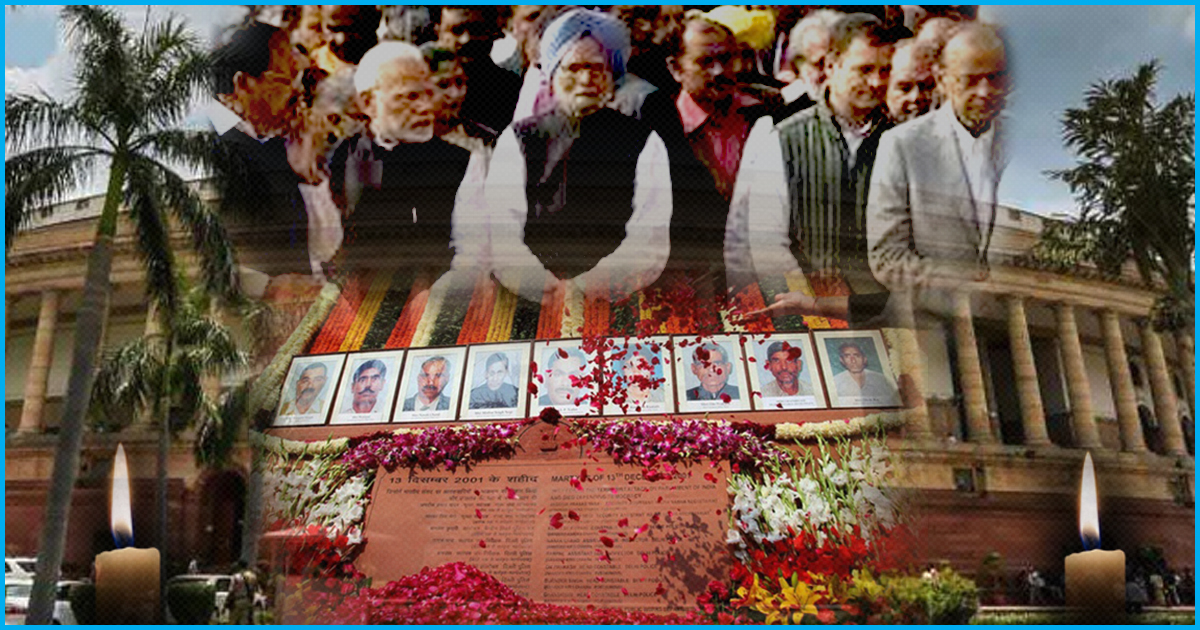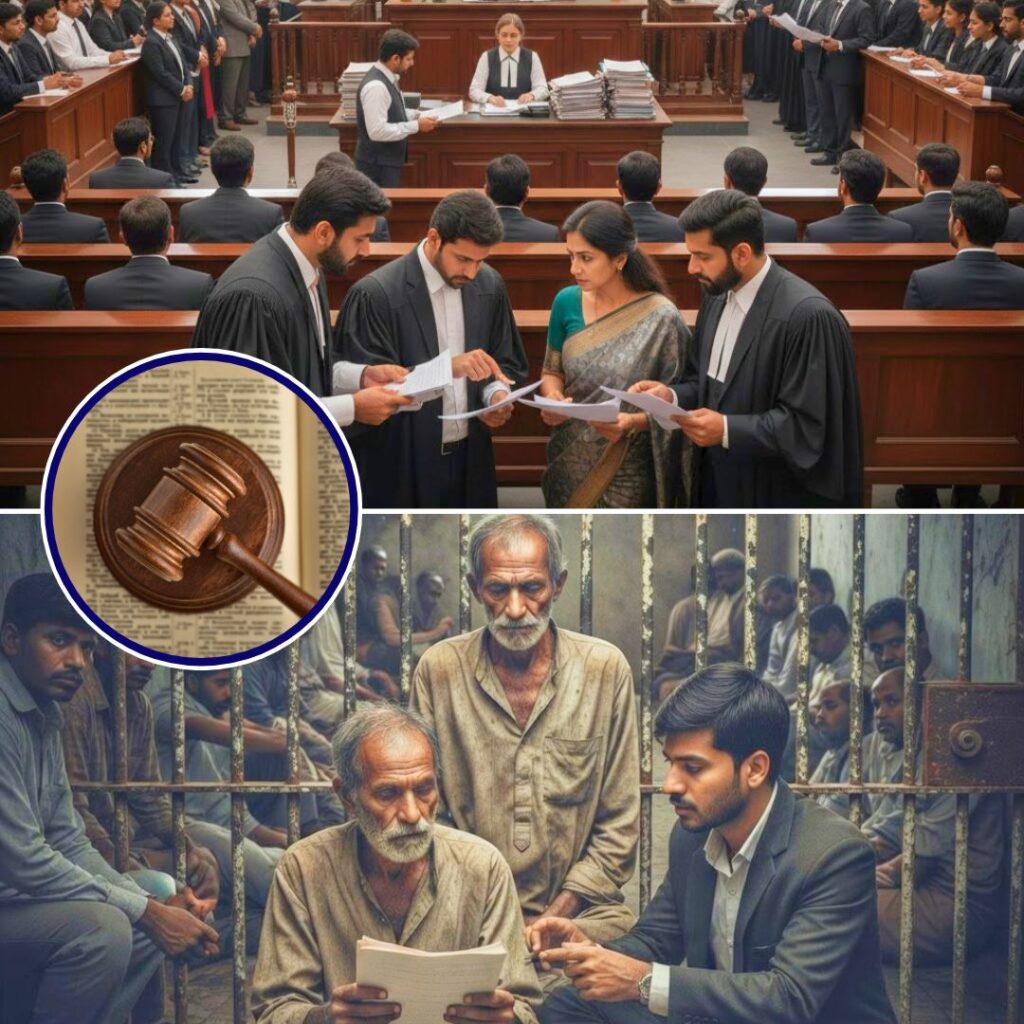The morning of December 13, 2001, looked almost usual in the national capital. Amidst many issues, the winter session of the parliament was discussing the Kargil coffin scam. At around 11 in the morning, the parliament session got over. When ministers were getting ready to leave the parliament premise, it was only then, the “cracker-like sound broke the silence of the morning”, and in just a few minutes the parliament of India became a battleground. One suicide bomber had blown himself.
It did not take much time for the officials to realise that some unknown terrorist groups were attacking the parliament. Reportedly, the attackers first tried to enter the main gate of the parliament, and they started moving towards the gate five, meanwhile, the firing continued from both sides. The entire nation was hearing the noise of gunshots firing at the parliament through their TV.
“I heard a cracker-like sound near the entrance, then I saw people running helter-skelter,” Kharbala Sain, a member of parliament, said outside the grand sandstone parliament, reports The Guardian.
According to the reports 14 people died in the attack, among the dead were five Delhi Police personnel, a woman Central Reserve Police Force (CRPF) trooper, two Parliament watch and a ward staff and a gardener. All five terrorists were killed. Soon after the failed attack, the parliament complex was sanitised; trapped ministers, parliamentarians, media persons were evicted safely from the parliament. The then Prime Minister, Atal Bihari Vajpayee who was not present at the complex at that time, said to the nation that India’s battle against terrorism had reached its final stage, as reported by The Guardian.
The nation paid tribute
Today, 17 years ago, the nation mourns over the death of people killed in the attack. Many prominent leaders across the political parties paid tribute to the victims of the 2001 Parliament attack in the national capital on Thursday, December 13, 2018. The foremost leaders included President Ram Nath Kovind, Prime Minister Narendra Modi, former Prime Minister Manmohan Singh and UPA chairperson Sonia Gandhi along with many other political leaders.
Expressing their homage for the PM tweeted,
We salute the valour of those who were martyred during the dastardly attack on our Parliament on this day in 2001. Their courage and heroism inspires every Indian.
— Narendra Modi (@narendramodi) December 13, 2018
#Visuals from Parliament on the anniversary of the 2001 terrorist attack on Parliament: ANI#ParliamentAttack pic.twitter.com/wAGWuV0Wqu
— Hindustan Times (@htTweets) December 13, 2018
Paid floral tributes to the martyrs of 2001 Parliament attack. pic.twitter.com/ZAXbufxBOC
— Amit Shah (@AmitShah) December 13, 2018
Post the parliament attack
There was no immediate claim of responsibility for the assault then. Though, the government initially suspected terror groups Lashkar-e-Taiba (LeT) and Jaish-e-Mohammed (Jof) role in the attack. However, both the organisations denied their involvement in the attack, as reported by The Firstpost.
In the next two days of the incident, the Delhi Police arrested the alleged mastermind of the attack, Afzal Guru from Jammu and Kashmir. He was accused of conspiring and sheltering the militants. Later, Afzal along with three others – SAR Geelani, Shaukat Hussain Guru and Afsan Guru- was found guilty. With the newsrooms debates running alleging Afzal’s role in the attack, there was a national consensus that accused Afzal Guru should be hanged. Later the Delhi High Court upheld Afzal’s death sentence, after which then-president Pranab Mukherjee also rejected his mercy petition.
On February 3, 2013, Afzal was hanged in Delhi’s Tihar jail, according to the reports his family was also not allowed to visit him before his death. The Congress who was in power then patted its back. Meanwhile, several Left-wing leaders and civil rights activists claimed that Afzal’s trail was done in an “unfair” manner.
In 2004, Afzal wrote a letter to his lawyer Sushil Kumar and a Senior Advocate in the Supreme Court saying, “I was never given a chance in the designated court to tell the real story…. Now I hope that the Supreme Court will consider my helplessness and the reality through which I had passed. STF made me a scapegoat in all this criminal act which was designed and directed by STF and others which I don’t know.”
Famous author-activist, Arundhati Roy in her book; The Strange Case of the Attack on the Indian Parliament‘ mentioned the “shoddy manner” in which the Delhi Police had put the case together against Afzal, as reported by The Firstpost.













